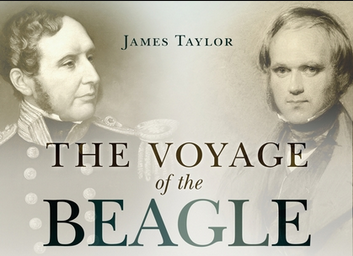In every other respect, however, the Beagle voyage was a triumph. Darwin experienced adventure enough to last a lifetime and accumulated a hoard of specimens sufficient to make his reputation and keep him occupied for years. He found a magnificent trove of giant ancient fossils, including the finest Megatherium known to date; survived a lethal earthquake in Chile; discovered a new species of dolphin (which he dutifully named Delphinus fitzroyi; conducted diligent and useful geological investigations throughout the Andes; and developed a new and much-admired theory for the formation of coral atolls, which suggested, not coincidentally, that atolls could not form in less than a million years — the first hint of his long-standing attachment to the extreme antiquity of earthly processes. In 1836, aged twenty-seven, he returned home after being away for five years and two days. He never left England again.

One thing Darwin didn't do on the voyage was propound the theory (or even a theory) of evolution. For a start, evolution as a concept was already decades old by the 1830s. Darwin's own grandfather, Erasmus, had paid tribute to evolutionary principles in a poem of inspired mediocrity called "The Temple of Nature" years before Charles was even born.











